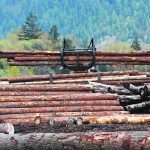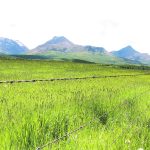WINNIPEG — When Wilf Keller began working at Agriculture Canada in 1973, things were different in crop science. After earning his doctorate from the University of Saskatchewan, Keller joined a team of researchers with Agriculture Canada in Ottawa. In one of his first assignments, a manager asked him to solve a problem related to the […] Read more
Tag Archives carbon capture

Sask. company pitches decarbonized fertilizer
Post-production carbon capture will remove carbon dioxide and send it deep underground: company
Corporate backers of a planned fertilizer plant in Saskatchewan say they will one day sell fertilizer with lower greenhouse gas output than is usually associated with synthetic fertilizer production. The plant, to be built in Belle Plaine in central Saskatchewan, is the brain child of Saskatoon’s Genesis Fertilizers and CARBONCO, a South Korea-based Total Solution […] Read more
Ag, forestry sectors urged to advocate together
An industry leader says both sectors poised to provide solutions to critical issues if the appropriate policies are in place
The agriculture and forestry sectors have a lot in common and should be working together on common goals, says an industry leader. Derek Nighbor, president of the Forest Products Association of Canada (FPAC), said both industries are strongly grounded in rural Canada and both share unique opportunities that are timely in the current environment. “As […] Read more
FCL unveils ‘energy road map’
How does an organization best known for manufacturing and distributing fossil fuels remain relevant and profitable in Canada’s emerging green economy? For Federated Co-operatives Ltd., the transition starts with an ambitious plan and a bulk tank full of investment capital. At the recent Food Fuel and Fertilizer Business Summit in Saskatoon, executives from FCL shared […] Read more

Universities launch soil carbon measurement project
Understanding the processes that producers use to manage pastures and then measuring the carbon storage critical
Scientists are digging deeper into how much carbon is stored in prairie soils. The University of Saskatchewan is co-leading a $3.2 million research project with the University of Alberta that is focused on carbon sequestration for climate change mitigation. The five-year project will study the amount of soil carbon in perennial forage systems across Saskatchewan […] Read more
Three sizes for carbon capture
Canadian farmland could sequester 72.7 million tonnes of carbon if more producers adopted beneficial practices like cover crops, applying compost and reducing tillage, says a new report from the Soil Conservation Council of Canada and the Compost Council of Canada. The report, released April 5, says there are three possible scenarios for storing carbon in […] Read more




